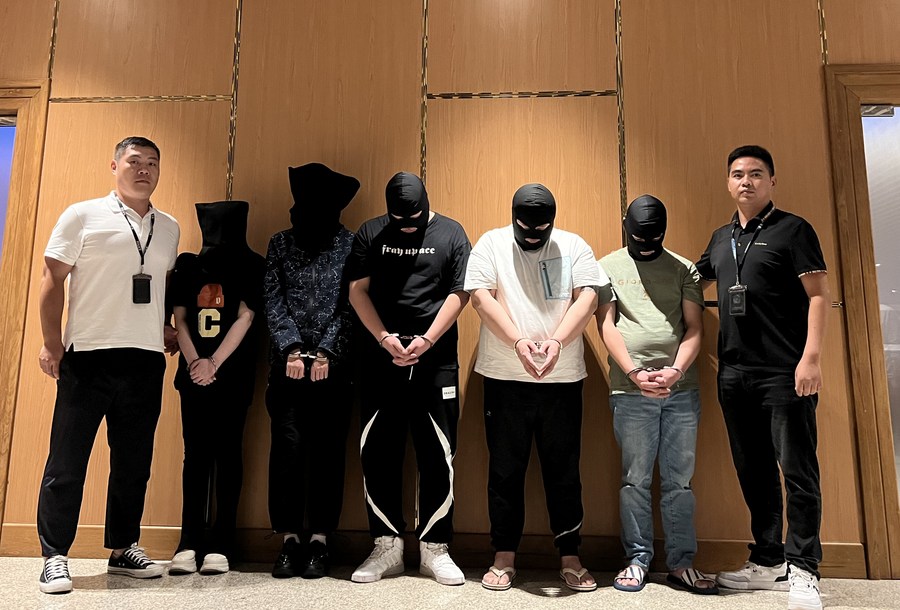After decades of tens of thousands of Chinese people being scammed abroad and forced to work in "fraud cages", Beijing has launched a large-scale campaign to expose notorious criminal groups in the town of Laukkaing (Myanmar) - once considered the "holy land" of the cyber propaganda.
What do I feel? - the man bowed his head and answered coldly in the questioning room, his hand was still held.
That person is Chen Dawei, a member of the Wei family, one of the notorious criminal groups that have controlled the Myanmar - China border for many years.
That scene is not a TV series but a documentary broadcast by the Central China Television (CCTV), revealing a campaign to crack down on the "bosses" behind the billion-dollar transnational fraud industry.
According to the Chinese Ministry of Public Security, these criminal groups have detained, tortured and forced thousands of Chinese people to work in online scams, mainly targeting victims in the continent. Those who resisted the order were beaten, electrocuted, starved or even murdered.
Since the end of 2023, a series of powerful families such as Wei, Liu, Ming and Bai have fallen into the net one after another. The Chinese court has sentenced 16 members to death, dozens of others to life in prison and hundreds of defendants are being prosecuted.

The town of Laukkaing (Myanmar), located near the border of Yunnan province (China), used to be a poor land, but was later turned by these tribes into a paradise for gambling and prostitution.
When illegal business is tightened, they switch to operating "fraud funds", recruiting people online with the promise of light work and high salaries.
These gangs own their own military, control electricity, water, security, and even local lawmakers. profits from online fraud centers are estimated at tens of billions of USD per year, according to the Center for micro-economic Analysis and Short-term Forecasting (CMASF).
Many unemployed Chinese youth have been lured to Myanmar, Cambodia or Laos, then their passports were confiscated and forced to work 12-16 hours a day in fraudulent centers.
Some witnesses said that anyone who refused to "work" would be beaten, locked up in a dark room or sold to another group.
Since 2023, China has coordinated with Myanmar to arrest more than 57,000 Chinese people in connection with cyber fraud. Many "bosses" were extradited back to their home country, and the trial and sentencing were broadcast live.
Beijing authorities consider this one of the major transnational crime-fighting campaigns to deter and restore a seriously damaged international image.
According to researcher Ivan Franceschini (Vietnam National University, Singapore), the fact that many Chinese people are leading the international fraud network has "deeply damaged China's reputation", forcing the government to take drastic action to regain domestic trust.
The latest figures show that the rate of cybercrime in China has declined steadily over the past year, and Beijing affirmed that it has effectively controlled the cross-border scam.
Investing in these cases helps us better understand the value of safety. Only when crime is eliminated can people be truly happy, an investigator shared in the documentary.











